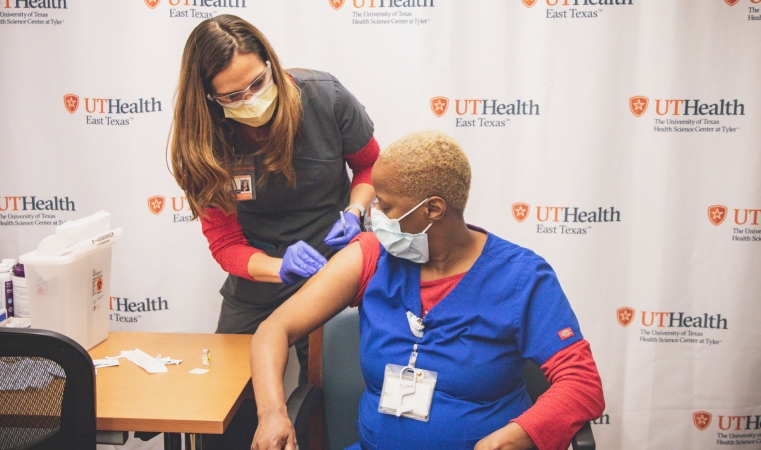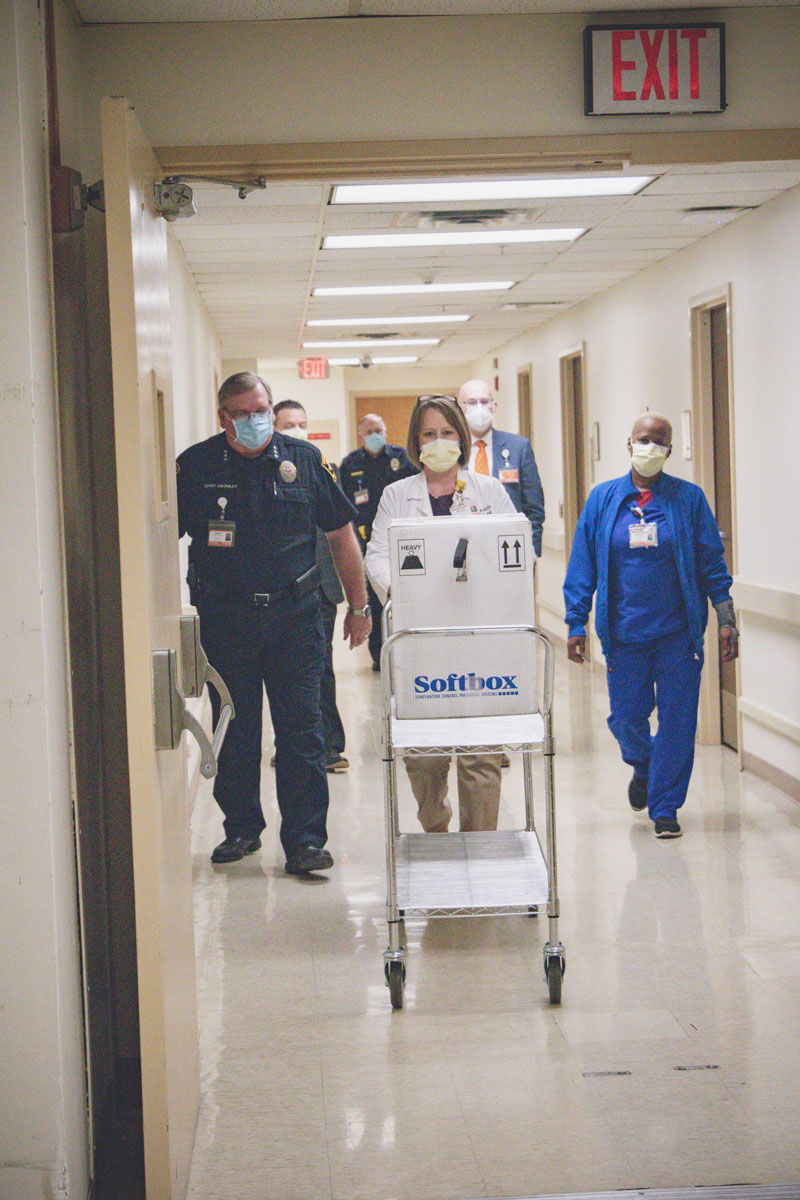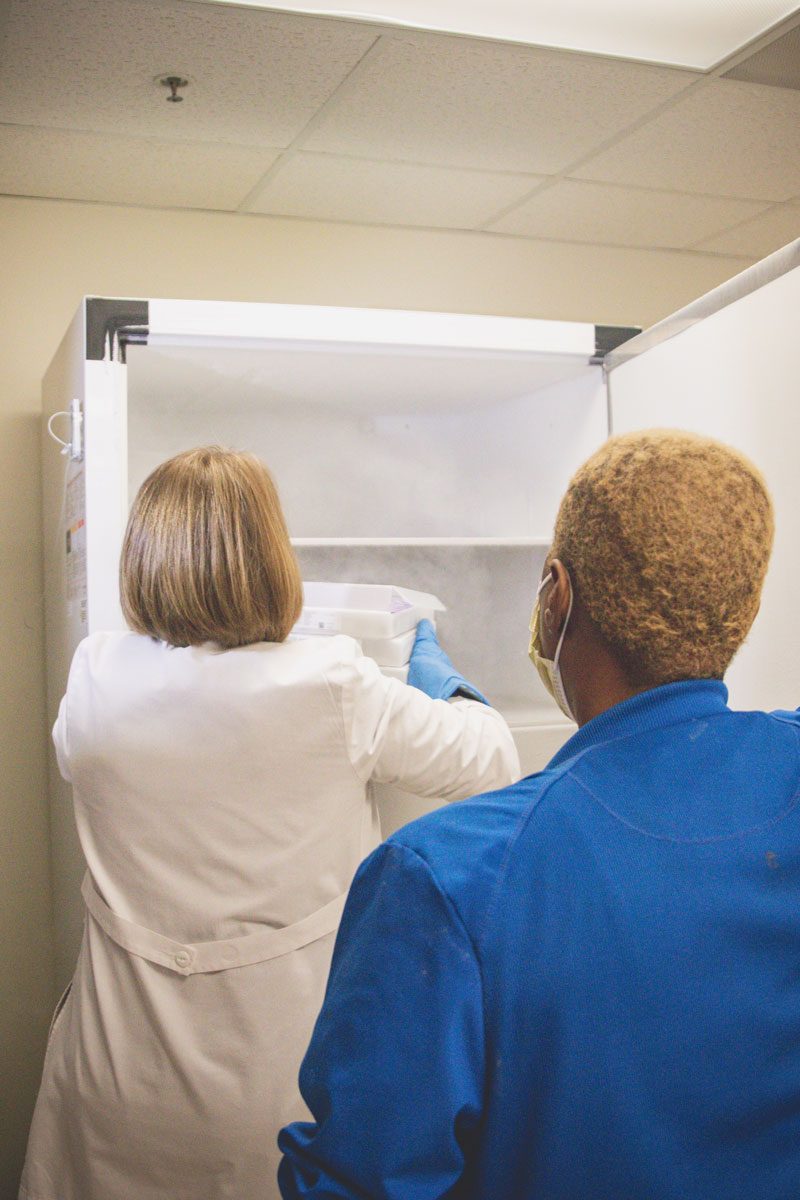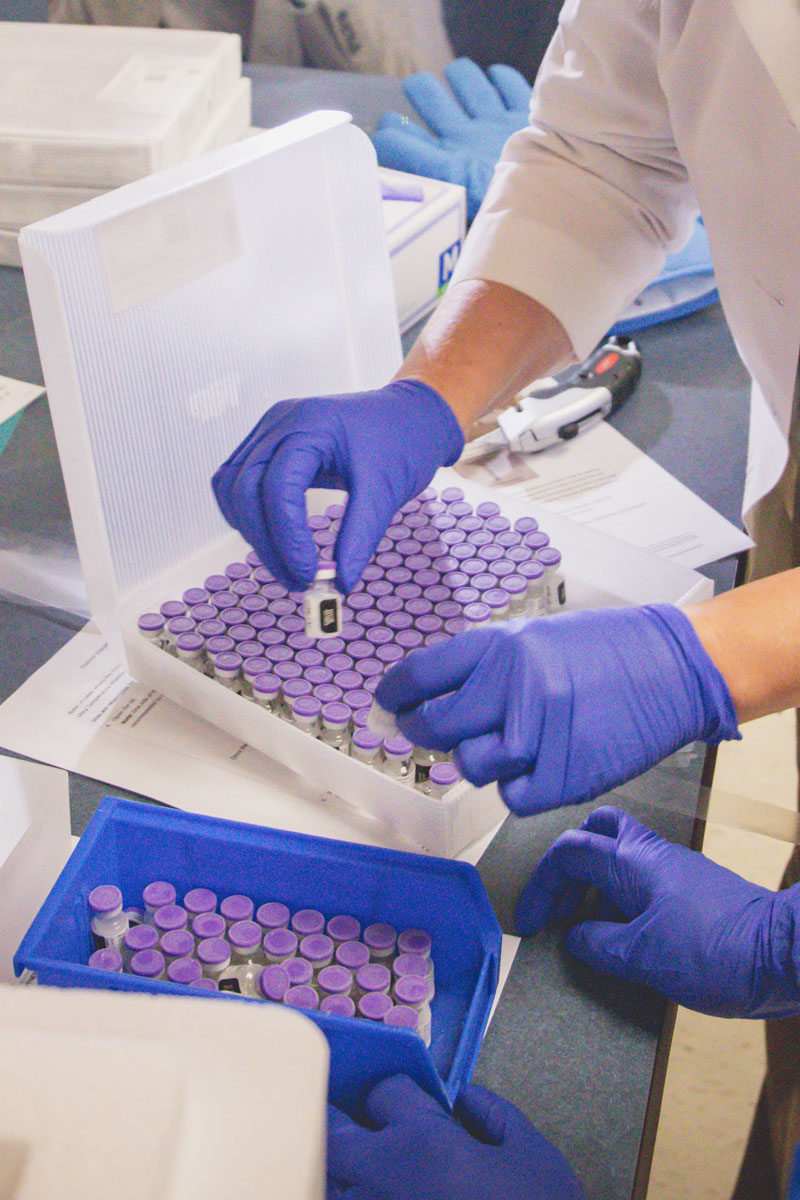
With his left thumb up as the vaccination needle was withdrawn from his right arm, Gary Viljoen proclaimed, “Nothing to it,” as he received the first COVID-19 vaccine administered in East Texas.
Viljoen, director of rehabilitation services at UT Health North Campus Tyler, is actively involved on the COVID-19 units as a physical therapist and has seen firsthand the devastating effects of the virus on his patients.
“I’ve never seen anything like this before in my 20-year career span, so I am hoping this (vaccine) is the light at the end of the tunnel,” Viljoen said. “I feel that as a frontline healthcare worker it is our duty to step up and take the vaccine to demonstrate to the general public that it’s safe to do so, not only to protect yourself but also to protect your community.”
A shipment containing 3,900 doses arrived via UPS at The University of Texas Health Science Center at Tyler shortly after 10 a.m. Tuesday to be distributed to frontline healthcare workers at UT Health East Texas. The vaccine arrived packed in dry ice and must be stored at negative 80 degrees. It is removed from the ultracold freezer and thawed for three hours before it is administered. Caregivers must return in 17-21 days to receive their second dose of the vaccine.
Johnnita Young, a pharmacy technician, received her vaccination just three hours after she helped unpack the vaccine from its shipping container.
“It felt good to get the vaccine. I felt honored to be able to get the vaccine today,” Young said. “I wanted to take the shot today, to help others, to let them know it’s safe.”



State and federal officials prioritized healthcare workers to receive the first rounds of vaccine because of their essential role in fighting the deadly pandemic and the increased risk of getting COVID-19 and spreading it. Dr. Tom Cummins, chief medical officer for UT Health East Texas, said the health system developed a staggered approach to vaccine availability that begins with frontline caregivers and then expands across the rest of the organization.
“It’s an exciting thing to know we finally have something that gives our caregivers a whole other level of protection and feeling of safety,” Cummins said. “This is a sign that the end of the pandemic is in sight, and it starts with caregivers and will roll out to other people as we go through the next several months. It’s just a thrilling moment to know that we’re starting to turn the corner against this finally.”
Dr. Kirk A. Calhoun, president of The University of Texas Health Science Center at Tyler and chairman of the board of UT Health East Texas, said academic medicine has played a key role in the development of this vaccine and other treatments for COVID-19.
“Usually it takes years and years and years to develop a vaccine, but because of this new technology coming out of medical schools and academic medical centers, we now are able to develop vaccines that are safe and effective in a much more rapid fashion,” Calhoun said.
Even with the advances in research and medicine that allowed the vaccine to be developed quickly, Calhoun said it is important that people remain vigilant with COVID-19 safety precautions until the vaccine is in widespread distribution.
“We want to urge everyone to continue to wear a mask, continue to wash your hands, continue to stay away from large crowds and continue to social distance because it’s going to take us a while to get back to normal,” Calhoun said. “But every journey begins with a first step, and this is our first step.”
About UT Health East Texas
UT Health East Texas provides care to thousands of patients each year through an extensive regional network that includes 10 hospitals, more than 50 clinics, the Olympic Plaza Tower, 13 regional rehabilitation facilities, two freestanding emergency centers, regional home health services covering 41 counties, an EMS fleet of more than 50 ambulances and four helicopters, and a comprehensive seven-trauma center care network, including the region’s only Level 1 trauma facility.
As a partner with The University of Texas System, UT Health East Texas is uniquely positioned to provide patients with access to leading-edge research and clinical therapies while training and educating the next generation of physicians and other health professionals. The nationally recognized UT System also includes UT MD Anderson Cancer Center in Houston, UT Southwestern Medical Center in Dallas, as well as three other major university medical centers located throughout the state.
